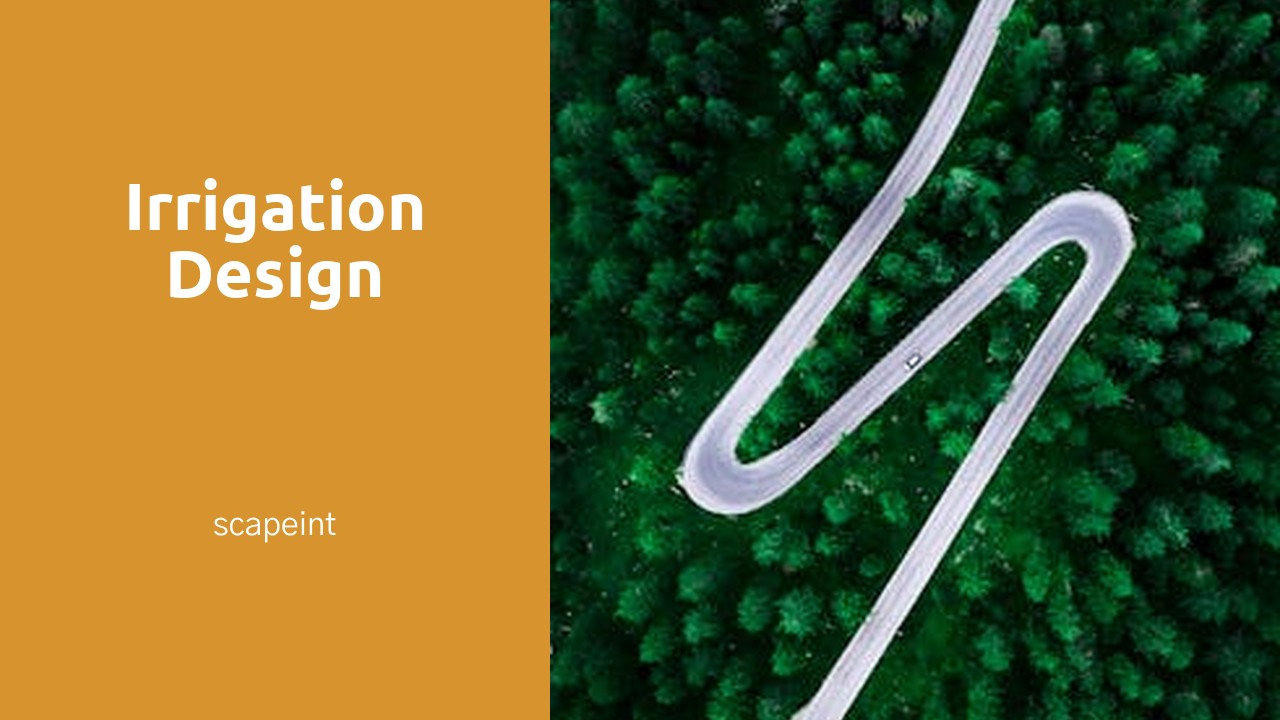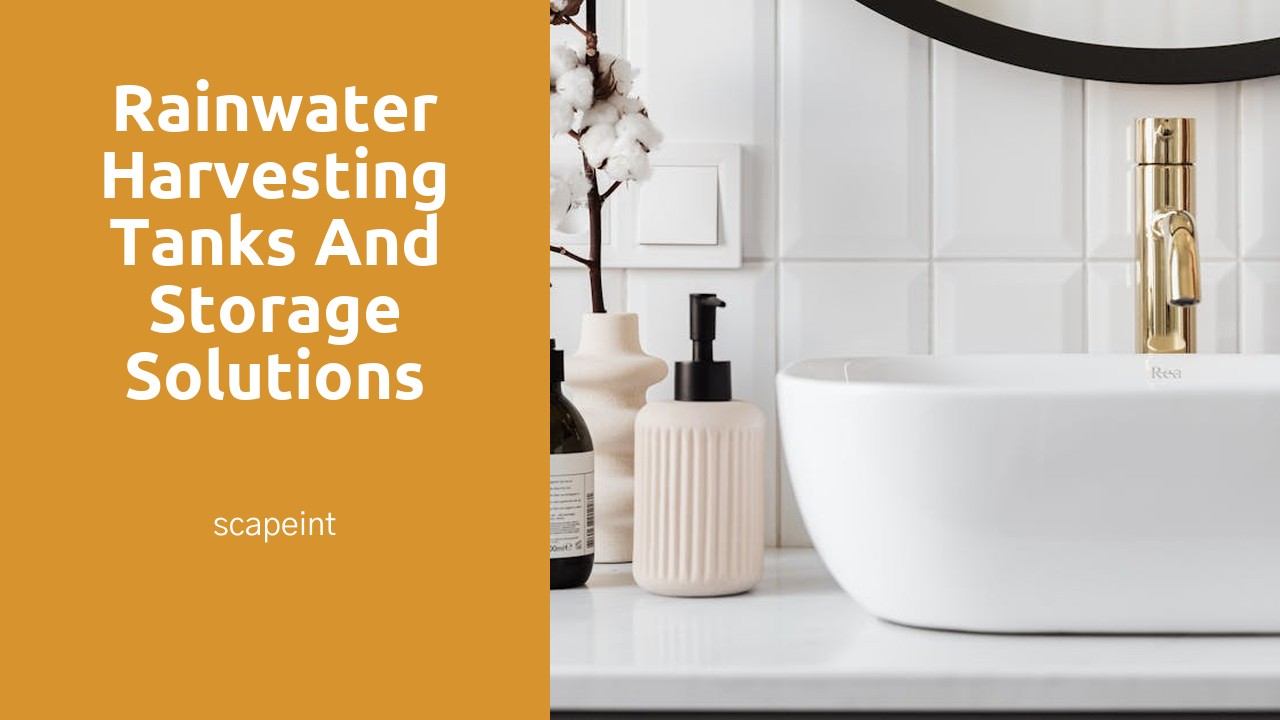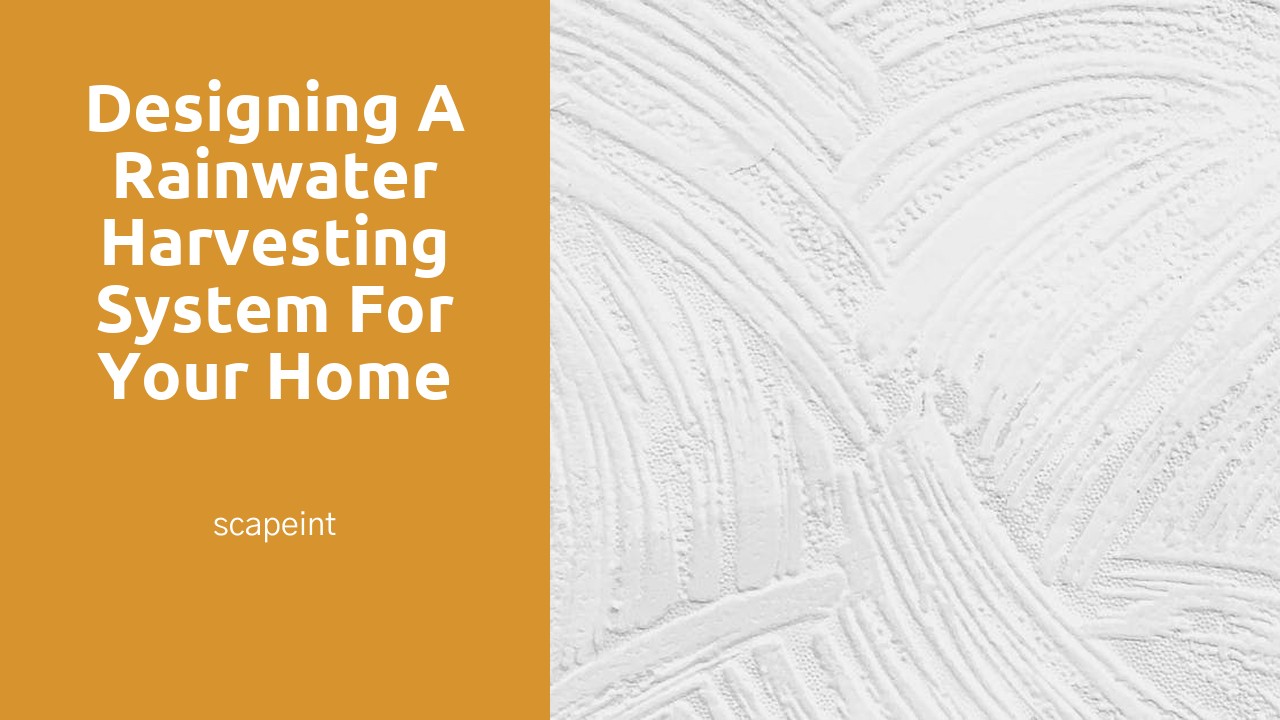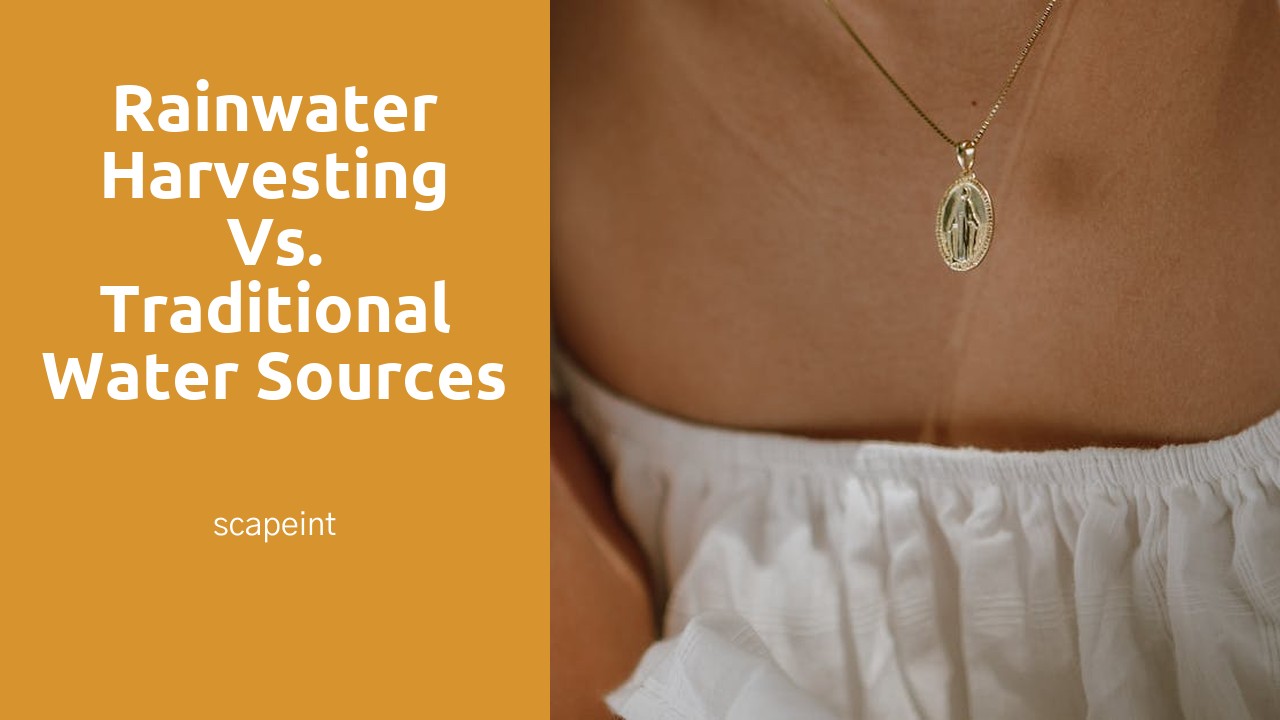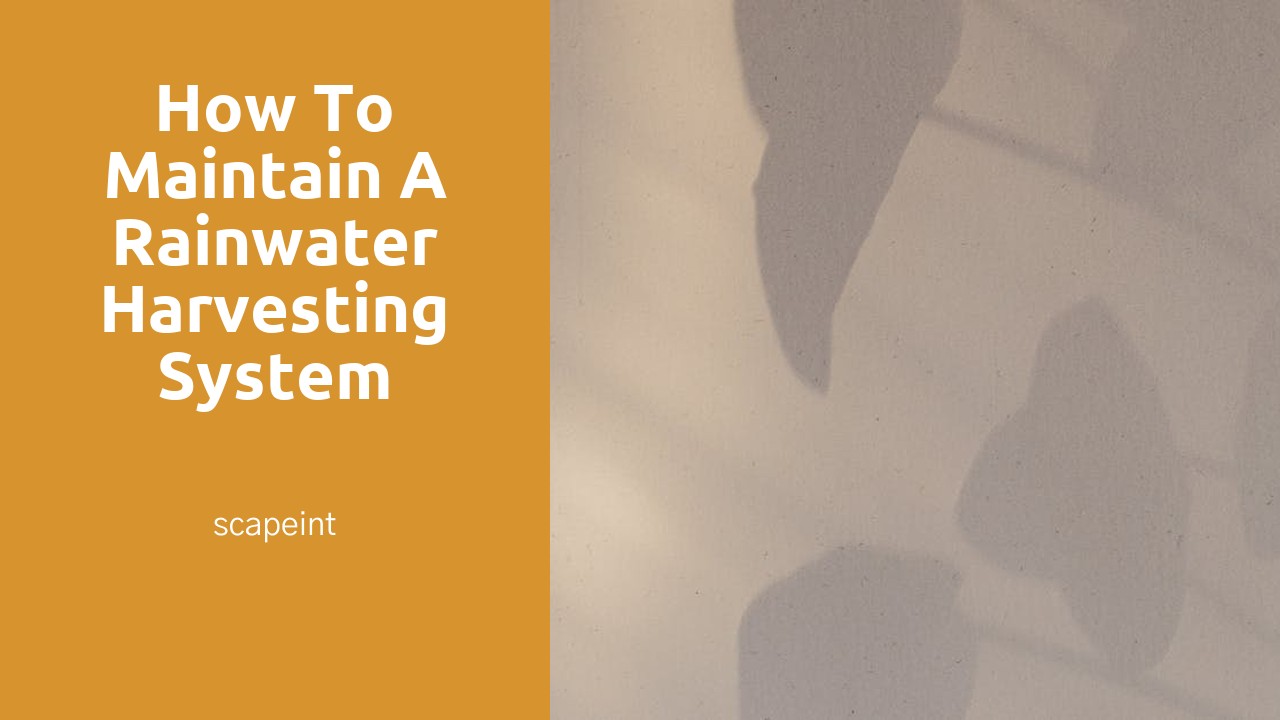
Table Of Contents
Calculating Cost Savings with Rainwater Harvesting
Rainwater harvesting has proven to be a cost-effective solution for businesses in Cornwall looking to reduce their water bills. By collecting and storing rainwater for various purposes such as irrigation and toilet flushing, businesses can significantly cut down on their reliance on municipal water supply. The initial investment in rainwater harvesting systems can vary depending on the size and complexity of the system, but the long-term cost savings are well worth it. For example, businesses in Cornwall, such as those focusing on Irrigation Design in Innisfil, can benefit from reduced water usage fees and lower energy costs associated with pumping water.
Moreover, the cost savings from rainwater harvesting extend beyond just water bills. By utilizing rainwater for non-potable purposes, businesses can also reduce the strain on municipal water treatment facilities and infrastructure. This can lead to potential savings for the local government, ultimately benefiting the entire community. In the context of Cornwall, where water conservation is crucial for sustainable development, implementing rainwater harvesting for commercial use not only makes financial sense but also contributes to the overall resilience of the region's water resources.
Estimating Financial Benefits for Businesses in Cornwall
Cornwall businesses can reap significant financial benefits by implementing rainwater harvesting systems. The initial investment in setting up rainwater harvesting infrastructure may seem substantial, but the long-term savings are substantial. The reduction in water utility bills, especially for businesses with high water consumption like restaurants, hotels, or manufacturing facilities, can quickly offset the upfront costs. Additionally, businesses that rely on large outdoor spaces may save significantly on irrigation costs with rainwater harvesting. For instance, implementing rainwater harvesting can enhance sustainability efforts and align with corporate social responsibility initiatives, which can enhance the brand image and appeal to environmentally conscious consumers. By investing in rainwater harvesting for commercial use, businesses in Cornwall can not only reduce their environmental impact but also realize considerable cost savings over time.
Moreover, businesses in Cornwall can also explore additional financial benefits through partnerships and collaborations. By leveraging government incentives or grants available for sustainable initiatives, businesses can further reduce the financial burden of implementing rainwater harvesting systems. Collaborating with local universities or research institutions can also open up opportunities for funding support or cost-sharing options for businesses looking to invest in sustainable practices. Cornwall businesses can maximize their financial benefits through strategic planning and partnerships, ultimately enhancing their bottom line while contributing to a greener and more sustainable future. Irrigation Design in Maple plays a crucial role in showcasing how businesses can implement innovative solutions for water management and resource efficiency.
Environmental Impact of Rainwater Harvesting for Commercial Use
Rainwater harvesting for commercial use in Cornwall has significant environmental benefits that contribute to sustainability efforts in the region. By collecting rainwater for various purposes like irrigation design in Bowmanville, businesses can reduce their reliance on municipal water sources, thus easing the strain on local water supplies. This conservation of water resources helps in mitigating the impact of droughts and ensures a more reliable water source for both businesses and local communities. Additionally, rainwater harvesting promotes groundwater recharge by allowing rainwater to infiltrate into the soil instead of flowing into storm drains, reducing the risk of flooding and preventing pollution of water bodies.
Moreover, the implementation of rainwater harvesting systems in commercial establishments leads to a reduction in energy consumption and carbon emissions associated with water treatment and distribution. By utilizing rainwater for non-potable purposes such as landscaping, toilet flushing, and cooling systems, businesses can lessen their environmental footprint and contribute to overall energy savings. This sustainable practice not only benefits the business directly through cost savings but also fosters a culture of environmental responsibility, demonstrating a commitment to reducing carbon emissions and promoting a greener future for Cornwall.
Sustainability Benefits for the Local Ecosystem
Rainwater harvesting systems have shown significant benefits for the local ecosystem in Cornwall. By utilizing collected rainwater for irrigation purposes, businesses contribute to the preservation of natural water resources. This practice also helps in reducing the strain on municipal water supplies and decreases the overall demand for fresh water. Moreover, rainwater harvesting mitigates the risk of stormwater runoff, which can carry pollutants and sediments into local water bodies, thus protecting aquatic ecosystems and maintaining water quality for the entire community.
The implementation of rainwater harvesting systems not only benefits businesses but also plays a crucial role in promoting environmental sustainability. A prime example can be seen in the Irrigation Design in Bowmanville, where businesses are adopting eco-friendly practices through rainwater harvesting. The decreased reliance on traditional water sources leads to less withdrawal from rivers and lakes, supporting the ecological balance of the region. Consequently, the integration of rainwater harvesting in commercial settings has a ripple effect on the ecosystem, creating a harmonious relationship between businesses and the environment.
Training and Education for Staff on Rainwater Harvesting Systems
To ensure the successful implementation of rainwater harvesting systems in commercial settings in Cornwall, it is imperative to provide adequate training and education to staff members. Training sessions should focus on the importance of utilizing rainwater for various purposes, such as flushing toilets, washing equipment, and maintaining green spaces on the premises. Employees should be educated on the components and functions of the rainwater harvesting system installed at the facility, including the filtration process and storage capacity. Moreover, emphasizing the benefits of using rainwater over tap water for non-potable purposes can help staff appreciate the environmental and cost-saving advantages of such a system.
Training programs should also cover topics such as basic maintenance practices, identifying common issues in rainwater harvesting systems, and engaging staff in practical exercises related to system monitoring and troubleshooting. By equipping employees with the necessary knowledge and skills, businesses can ensure the optimal performance and longevity of their rainwater harvesting infrastructure. Additionally, integrating sustainability principles into staff training can foster a culture of conservation and environmental responsibility within the organization, aligning with Cornwall's commitment to promoting eco-friendly practices. Effective education on rainwater harvesting systems not only enhances operational efficiency but also contributes to the overall sustainability goals of businesses in the region. As the implementation of rainwater harvesting becomes more prevalent in Cornwall, staff members play a key role in supporting such initiatives and cultivating a greener future for the community. Irrigation Design in St Thomas.
Ensuring Proper Usage and Maintenance by Employees
To ensure proper usage and maintenance of rainwater harvesting systems by employees, businesses in Cornwall must provide thorough training and ongoing education. Employees should be educated on the importance of conserving water, the benefits of using rainwater for non-potable purposes, and the specific systems in place at their workplace. By understanding the purpose and functionality of the rainwater harvesting system, employees can contribute to its effectiveness and longevity. Additionally, regular training sessions should be conducted to update staff on any changes or advancements in rainwater harvesting technology, ensuring that employees remain well-informed and engaged with the process. For instance, a business in Cornwall may host a workshop on the latest developments in irrigation design in Bowmanville to enhance employees' knowledge and skills in maintaining the rainwater harvesting system.
Moreover, businesses should establish clear guidelines and protocols for the proper usage and maintenance of rainwater harvesting systems. These guidelines may include instructions for monitoring water levels, conducting routine inspections, and reporting any malfunctions promptly. By setting expectations and accountability measures, employers can foster a culture of responsibility among employees towards the sustainability of the rainwater harvesting system. Encouraging staff to take ownership of the system and providing incentives or recognition for exemplary maintenance practices can further motivate employees to adhere to the established guidelines. This proactive approach not only ensures the efficient operation of rainwater harvesting systems but also empowers employees to contribute actively to environmental conservation efforts in Cornwall.
FAQS
What is rainwater harvesting?
Rainwater harvesting is the process of collecting and storing rainwater for later use, typically for irrigation, cleaning, or other non-potable purposes.
How can businesses in Cornwall benefit from rainwater harvesting?
Businesses in Cornwall can benefit from rainwater harvesting by reducing their water bills, decreasing their reliance on mains water supply, and contributing to sustainability efforts in the local community.
Are there any financial incentives for businesses in Cornwall to implement rainwater harvesting systems?
Yes, there are financial incentives available for businesses in Cornwall that choose to install rainwater harvesting systems, such as grants or tax credits aimed at promoting sustainable water practices.
What are some environmental benefits of rainwater harvesting for commercial use?
Rainwater harvesting helps businesses reduce their water consumption, decrease stormwater runoff, and protect local water sources from pollution, ultimately leading to a positive impact on the environment.
How can businesses ensure the proper usage and maintenance of rainwater harvesting systems by their employees?
Businesses can provide training and education to their staff on the importance of rainwater harvesting, proper usage of the systems, and regular maintenance requirements to ensure efficient operation and longevity of the equipment.
